It was 5.12am, deep in Kenya's Forest of the Lost Child. Seven Masai warriors, standing with spears high in the sky and ready to kill, were huddled around me. I was nudged by one of the taut, muscular bodies, scantily covered in its tiny red tartan cotton robe, and I had to make a decision: be a warrior by joining the front line to protect my tribe from a snorting, slobbering 500kg bitch of a buffalo, or stay on the sidelines by hustling up a tree to watch from above as the true warriors went to battle.
A year before, my instincts might have said something else, but by this time I had seven weeks of warrior training under my beaded belt, and a renewed trust in my personal power. I looked the buffalo straight in the eye and with a flex of my muscles, I charged like the warrior I had trained to be, sprinting and screaming with the spear ready to strike.
The Masai are a semi-nomadic tribe living in Kenya and Tanzania. Their warriors are similar to a typical military force, but the main offenders in the bush are the lions, buffalo, elephants and hippo. While the goal of the tribe is to live in harmony with the land and the animals, the warriors will back away from nothing if the community is in harm's way. Showing one hint of fear as a warrior is strictly prohibited.
One standard practice to prove a warrior's strength is the circumcision, which occurs when a male is in his teens. The procedure is not a little snip snip – it is a complete skinning of the penis. One wince during this procedure could get you shunned from society. The Masai live in the wild in homes made of mud, sticks, grass, cow dung, human urine and ash, and their diet is animal blood, meat and milk. I was a 27-year-old Jewish girl from California, who had spent the past four years building a concierge service for college students. I spent four years building the business before selling it.
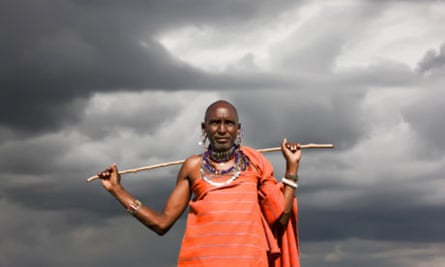
My most extreme backpacking excursion had been on a cruise ship to Alaska. I loved my manicures and pedicures, and driving around in my BMW and I believed that life wouldn't be OK without a just-out-of-the-oven croissant and a cup of Earl Grey tea in the morning. But I wanted to test myself. After selling my company I started applying to business schools. Once the applications were submitted, I faced a significant time gap. I sent out an email to solicit ideas. A college friend responded, raving about a trip she took with a US-based foundation that sends westerners to places, including Kenya, to help build schools and clinics. The particular trip my friend mentioned was to build a clinic in the Masai Mara game reserve in south-western Kenya. This was the type of experience I wanted, so I submitted a check and the registration for the trip the same day.
On the flight from Nairobi, I peered down at the thin, twisting valleys etched through parched, dusty-brown land dotted with fluffy green treetops. When the pilot pointed out the volunteer centre, a pinprick of a settlement in the middle of the savanna, I knew that being left alone with my thoughts and nature was exactly what I needed.
For the next two weeks, while laying bricks and making mortar with the locals, I learned about the Masai. I took morning hikes with Winston, a chief from the tribe and also our guide while volunteering. His deep, almost spiritual sense of purpose and confidence was what I wanted.
Winston explained that his tribe was at a crossroads because the Kenyan government was taking away more and more of its land and because global warming meant continual droughts that caused their cattle (their main asset) to die. There was widespread fear among the tribe that the Masai culture will no longer exist in 50 years.
Losing the integrity of a tribe because of westernisation seemed unacceptable to me, but I felt one element of modern life – women's rights – could help the tribe continue while remaining true to its practices and beliefs.
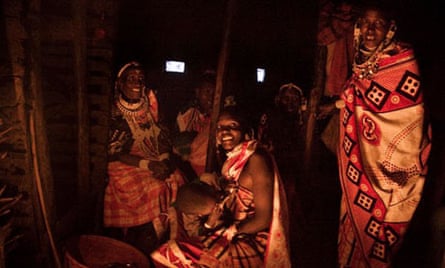
Masai women are extraordinarily strong: they build homes, chop trees for firewood, walk seven hours a day to fetch water. But they are not treated as equals. I knew that the warriors had the utmost respect in the tribe and that they were given greater access to education and not married off when they were 12. I believed that providing women with the right to become warriors would broaden the tribe's perspective of their personal power, which could only help them fight to maintain their customs.
On a hike I asked Winston the question that had been gnawing at me since I met him: "How many women are warriors?"
His reply: "None. Women aren't strong or brave enough to do it."
His response ignited a fire within me that made me want prove him wrong. I asked him to explain what was involved in becoming a warrior. He said: "You need to be a man. You need to go through rites of passage that only a man can do. You need to live where you can only eat meat and drink blood and herb soup that makes you lose your mind. You need to get circumcised and not wince from the pain. You need to be fearless. You need to protect and entertain your community and be able to face any animal head-on. You need to be able to throw a spear and use a sword with total accuracy. And you need to be a man
I said: "Don't Masai women want to be warriors?"
"Of course they do. Who wouldn't want to be like us?"
"And they've never had a chance?"
"No."
"But everything you just said is something a woman can do – something I can do – except for the penis part," I said.
The Chief wasn't entertained. "Women aren't built emotionally or physically for the work that warriors do." He shrugged his sculpted shoulders and turned back to the mountain. Winston's words and that shrug made me furious! I can take no for an answer if there's a good reason, but the idea that women couldn't be warriors just because they weren't men wasn't sitting well with me. Winston and I made a deal that if I left my stilettos behind, he would take me through the traditional rites of passage to become a warrior.
I was excited about this, and tried not to spend any time thinking about the dangers. But later that day Faith, a Masai woman who worked at the volunteer centre, told me that women in her tribe had been trying to get the right to be warriors for generations, and if for some reason a white, Jewish girl had the opportunity to make a change, I should take it seriously.
I went home to California to prepare for a longer stay with the Masai, but after reviewing myself in my bedroom mirror, I wondered if my pleasantly plump figure was going to be able to climb a tree if needed. Deciding not to wait until a hippo was about to swallow me whole, I started training to get myself fit.
Two months later, I returned to Kenya with Becca, a friend from the US. Becca and I had met in Kenya on the building trip and became friends when we agreed that women should have the right to be warriors. Landing in Nairobi, we travelled back to the clinic and found Winston, the chief.
"What are you doing here?" he asked. I reminded him of our deal. Clearly, he hadn't taken me seriously, and despite our pleading, turned us down. He said he would not have the deaths of two Americans on his head.
Becca and I were back at our hotel in Nairobi. Our project seemed roadblocked when out of the blue a friend from California introduced us to the man who would guide us through the rites of passage: Lanet Danson Lekuroun, a university-educated Masai warrior who was raised to believe that women's voices should be heard.
"I can't promise that you will become warriors. I also can't tell you that my tribe will accept you. There is going to be much danger. I will do my best to help prepare you, but there is no way to predict the future in my world or yours. All we can do is try."
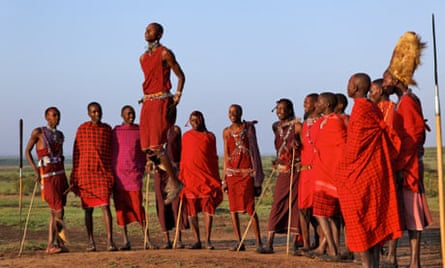
Within hours we piled into a taxi and were on the road headed into the bush – again. As the main road ended, my teeth clenched and my hands were in tight fists as we slowly crept over rocks and tall grass. On the way, Lanet explained that a new warrior class only happens every five to seven years, but the training that he would put us through would be exactly the same as what the Masai men do.
Lanet also told us that he had chosen six other Masai men to live with us deep in the forest while we underwent training. He said the men chosen were known as community leaders and also quite progressive in their thoughts about women's rights.
For the next two months, we lived on a 20-square-foot patch of land in the forest and slept in a communal bed made mainly of oak leaves. On many occasions, I truly believed that I was going to die.
On day one, we were almost stampeded by elephants, and I had to suffocate a goat and then drink its blood directly from the jugular. On day two, my hands were covered with bloody blisters from learning how to use a spear and a sword. And a few weeks later, I was very nearly swallowed by a hippo. It was only a pull of my belt by a fellow warrior that yanked me back.
I had a daily urge to wave the white flag, especially after 10 smelly days without a bath. But just as the flag was about to go up, Lanet would remind me that this mission was about much more than my personal goal. And this reminder allowed me to transition to Masai life. I quickly learned that by just doing and not questioning, I would have a greater chance of surviving.
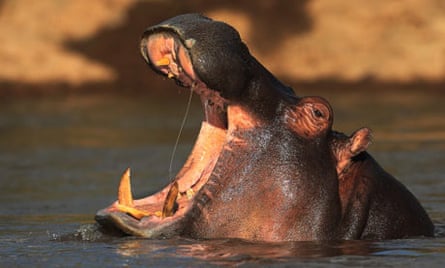
Initially, the tribesmen thought that Becca and I would last less than a day. Surely the nightly calls from the hyenas or the diet of raw kidneys and goat brain soup would make us bolt back to a five-star hotel. Once several weeks passed, however, we proved that we were able to live an authentic Masai life. Most important, though, our values adapted to those of the Masai, which revolve around community, courage, selflessness and living in the moment.
After a little over four weeks of training, we moved camp to a more dangerous part of the forest. It was a regular day of spear training and trekking until we purposely went to what the Masai called a "buffalo playground" so that we could test our mental and physical strength.
Just as we arrived, we saw a baby buffalo grazing on the grass. Everyone went silent as we knew that the calf would not be far from its mother. If the mother saw us, she would try to kill us to protect her baby. I stood petrified, as the ground started to rumble. The baby buffalo trotted to the edge of the field and the sea of green parted again to reveal the meanest animal I had ever seen.
Grunting and howling, I sprinted towards the beast and released my spear. As it rocketed through the air, the other Masai released their spears, but mine landed first, in the edge of the buffalo's right butt cheek. The buffalo died, but only because it was going to kill us. I was able to claim the kill because my spear hit the buffalo first.
That night, the elders decided that Becca and I had proved we were strong and brave enough to be warriors. They felt that the training we had gone through and our fearlessness and selflessness were at an equal level to the male warriors. One of the elders, who was a senior leader of the Rhino clan, inducted us into his clan with a short ceremony followed by a long speech over the fire, which allowed us to be officially recognised as the first female Masai warriors.
We stayed with the Masai for another month. Our first major community interaction was at a wedding, two days after we left the forest. Lanet told us hundreds of people would be at the wedding. It would be like my coming-out party. Lanet had said from the beginning that he wasn't sure if his tribe would accept us, and we were finally going to find out their true feelings.
At the wedding we sang and danced as warriors. I felt completely at one with the tribe until an elder male approached me, screaming and waving his sword. I was paralysed with fear and just as he swung his sword again, Lanet and another warrior whisked me away. I asked what happened. Lanet told me that the man was angry that Becca and I had been recognised as warriors.
He said: "This is now up to the tribal leadership to decide if Masai females will have the right to become warriors. There will be much opposition, but there will be, and already is, much support."
While making this change is not unanimously accepted by men and women in the tribe, the vast majority believe steps towards equality will help sustain the culture in the long term, and one of those steps is allowing women to become warriors. And I am so proud to say that there are at least 20 girls in Loita who are ready to be part of the next warrior age set.
As a result of our training and advocacy, the Masai in Loita, Kenya, are leading the charge to change tribal law and allow all Masai women the right to become warriors.
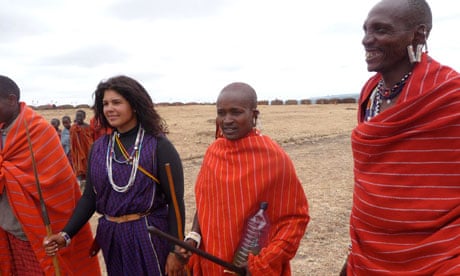

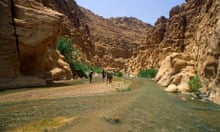
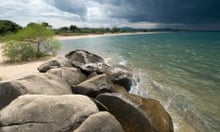
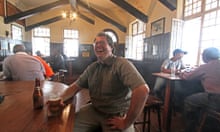
Comments (…)
Sign in or create your Guardian account to join the discussion